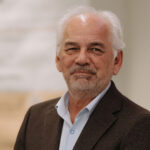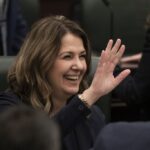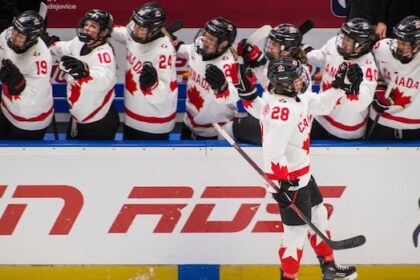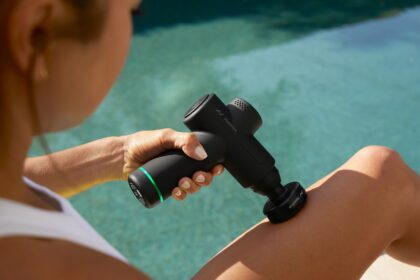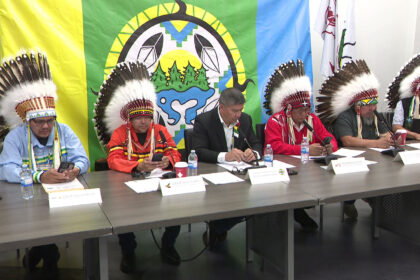NorthNunavut’s former deputy premier has lost her seat in the territory’s Legislative Assembly and three constituencies will face recounts after a tight race leaves some votes still uncounted and a 37 per cent voter turnout. Incumbents, including former deputy premier, out during close election across much of Nunavut Listen to this articleEstimated 4 minutesA voting sign inside Aqsarniit Hotel, the site of the polling station in Iqaluit in this year’s general election. (David Gunn/CBC)See the latest election results in Inuktitut hereSee the latest election results in English here Nunavut’s next territorial government is shaping up to be a mix of incumbents and newcomers, with several former MLAs, including the deputy premier, losing their seat in Monday’s election. Pamela Gross, the former deputy premier from Cambridge Bay, lost her seat to Kitikmeot Inuit Association executive director Fred Pedersen who received over 50 per cent of the vote. Incumbents Adam Arreak Lightstone in Iqaluit-Manirajak and former regular caucus chair Solomon Malliki in Aivilik also lost their seats.Voter turnout was 37 per cent according to Elections Nunavut. Here’s who was elected on Monday: Familiar facesCraig Simailak in Baker LakeJohn Main in Arviat-North Whale Cove Daniel Qavvik in Hudson Bay David Akeeagok in Iqaluit-NiaqunnguuJanet Pitsiulaaq Brewster in Iqaluit-SinaaGeorge Hickes in Iqaluit-Tasiluk Alexander Sammurtok in Rankin Inlet North-Chesterfield InletDavid Joanasie in South Baffin New facesHannah Angootealuk in Avilik Abraham Qammaniq in Ammituq Jamie Kablutsiak in Arviat South Fred Pedersen in Cambridge Bay David Porter in Gjoa Haven Gwen Healey Akearok in Iqaluit-Manirajak Simon Kuliktana in Kugluktuk Cecile Nelvana Lyall in Netsilik Annie Tattuinee in Rankin Inlet South Brian Koonoo in Tununiq Gordon Kautuk in Uqqummiut At least three ridings will face recounts after their elections were too close to call:Pangnirtung, where two votes separate leader Johnny Mike from second-place Nathaniel Julai AlikatuktukQuttiktuq, where four four votes separate leader Steven Taqtu from second-place Philip KallukAggu, where three votes separate incumbent Joanna Quassa from second-place Erasmus IvvaluPolls closed at 7 p.m. in each of the region’s three time zones. For much of the evening, Elections Nunavut’s website was not loading. Results were slow to be posted by Elections Nunavut. Only one winner was announced before 11:59 p.m. ET, though more results came in shortly after. In a written response to CBC News, Kiran Situt, Elections Nunavut’s chief electoral officer, said the organization is taking care with posting results. “We take the verification process seriously. In addition, the special ballots arrived late on Canadian North. We will post all the results tonight before we leave,” he said.There are no votes in two constituencies because the candidates, including former government house leader David Joanasie, were acclaimed. Will Nunavut reverse the trend in voter turnout?Voter turnout has been steadily declining since the first Nunavut general election in 1999. Less than half of eligible voters cast a ballot in 2021, compared to 86 per cent in 1999. Speaking to CBC News ahead of election day, Manitok Thompson, one of Nunavut’s first MLAs, said she, alongside other Nunavummiut, were so excited about the territory when it was first created. But fast forward to 2025, she said the government’s slow progress on important issues like the high cost of living and a housing crisis is fuelling voter apathy. “I think they are not seeing any changes that are from their basic needs. Those are the people that go out to vote, but they’re not going out anymore,” she said.The youth vote will be a crucial one to watch. About half of Nunavut’s population is under 25 years of age, though the last territorial election saw youth had the lowest voter registration. According to Elections Nunavut’s results page, there are roughly 17,000 registered voters in this year’s general election. As a consensus-style government, there are no political parties and candidates run as independents. Members of cabinet are chosen approximately two weeks after the general election. Newly-elected MLAs gather to select the Speaker, premier and ministers, in a secret-ballot election.ABOUT THE AUTHORSamuel Wat is a senior writer for CBC North, based in Yellowknife. He has worked as a producer and reporter with CBC in Iqaluit and Ottawa, and for public and state broadcasters in New Zealand before that. You can reach him at samuel.wat@cbc.caWith files from Juanita Taylor
Wednesday, 4 Feb 2026
Canada – The Illusion
Search
Have an existing account?
Sign In
© 2022 Foxiz News Network. Ruby Design Company. All Rights Reserved.
You May also Like
- More News:
- history
- Standing Bear Network
- John Gonzalez
- ᐊᔭᐦᑊ ayahp — It happened
- Creation
- Beneath the Water
- Olympic gold medal
- Jim Thorpe
- type O blood
- the bringer of life
- Raven
- Wás’agi
- NoiseCat
- 'Sugarcane'
- The rivers still sing
- ᑲᓂᐸᐏᐟ ᒪᐢᑿ
- ᐅᑳᐤ okâw — We remember
- ᐊᓂᓈᐯᐃᐧᐣ aninâpêwin — Truth
- This is what it means to be human.
- Nokoma



